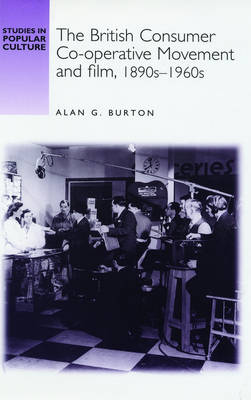Studies in Popular Culture
1 total work
The British Consumer Co-Operative Movement and Film, 1890s-1960s
by Alan Burton
Published 1 March 2005
This is a major new study on the Co-operative Movement's engagement with film for educational, cultural and publicity purposes. It provides original and enlightening insights into the political and commercial use of cinema in the twentieth century and significantly extends our understanding of the achievements of workers' cinema in Britain. It reveals the Movement's widespread involvement in the early and silent cinema periods (well before other Labour groups adopted film for propaganda purposes), brings to greater prominence the role of Co-operators in the celebrated interwar Workers' Film Movement, and develops this to give a close examination of the unrecognised film propaganda work during the People's War. The study ends with the decline of the use of film as an educational and promotional medium by the Movement following the impact of commercial television in the 1950s. It will be of particular interest to students of social and labour history, and film studies.
